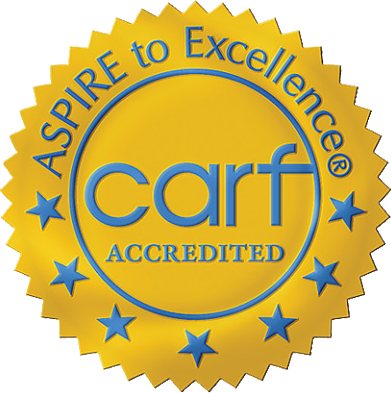Program Scope of Services – Behavioral Health Home (HH)
Population(s) served:
Children ages 5 and up, and adolescents who reside in Maryland with persistent, severe mental illness.
Settings
Outpatient - office, community, assisted living facilities and in-home. Any location except a hospital medical unit, a nursing home, an adult medical daycare center, and emergency rooms (if included in the hospital rate).
Hours of services:
7:30 AM to 5:30 PM After hours for crisis and scheduled appointments only
Days of services:
Monday – FridayWeekends for crisis and scheduled appointments only
Frequency of services:
As scheduled as needed basis
Payer sources:
Medicaid
Fees:
Current approved Medicaid fee schedules for Maryland
Referral sources:
Referrals accepted via licensed mental health professionals actively involved in the participant's treatment.
Specific services offered:
All services are rendered by trained qualified independent contractors deemed competent by the program to provide services. Comprehensive care management, care coordination, health promotion, comprehensive transitional care, individual & family support service, referral to external services, collaboration with staff and other providers involved in participant’s care.
Entry criteria:
Must be enrolled and receiving PRP services from the program. The individual needs program services to enable the individual to improve or restore independent living and social skills necessary to support the individual's: Recovery; Ability to make informed decisions and choices; and Participation in community life; The individual meets medical necessity criteria for PRP services and have severe and persistent mental illness priority population diagnosis; The individual agrees to apply for medical assistance, as appropriate; and The services are preauthorized, as needed, by the Administration's administrative services organization (ASO).
Must demonstrate motivation for treatment and present with symptoms of mental illness. Services are available to participants with Medicaid, certain dually eligible Medicare recipients, and uninsured eligible participants. If a person is uninsured, the program may assist with applying for Medicaid and register the person to receive temporary insurance coverage.
Transition/Exit criteria:
Discharge/transition planning occurs throughout all phases of the program. The person served has met discharge/transition criteria when the goals of the individual plan are achieved and referral to support services is completed, when appropriate. Additionally, discharge may occur if the person no longer attends regularly or chooses not to actively participate in the program.
Description of the program:Health Homes offer enhanced services and supports for participants with serious and persistent mental illness (SPMI), serious emotional disturbance (SED), and opioid substance use disorders. The complexity of managing these conditions often increases the challenges of treating and preventing additional chronic health issues, both behavioral and somatic. Those with behavioral health conditions face unique barriers in addressing their physical health needs, resulting in disproportionately poor health outcomes, low engagement in preventive health efforts, and high rates of avoidable hospital and emergency department (ED) encounters. Health Homes assist participants of all ages in improving overall wellness through a whole-person approach to addressing their behavioral, somatic, and social needs. Becoming a Health Home allows behavioral health providers to augment their existing services, building upon and adding to their staff and activities to better serve participants. This is accomplished through connecting participants and caregivers to the myriad of supports and services available to them, offering health promotion activities, monitoring both somatic and behavioral health needs, and assisting with transitional care. The Health Home becomes the locus of care, building participants’ self-management capacity while reducing avoidable hospital usage and ultimately improving outcomes.
Like adults with serious mental illness, children and adolescents with serious emotional disturbance face an elevated risk of adverse health consequences. While all Health Homes aim to reduce these negative outcomes, those serving children emphasize coordinated prevention, health promotion, and wellness activities that focus on their health-related choices and behaviors. These efforts involve augmenting the existing services provided to children with SED through not only the somatic and behavioral health care systems, but also through local school systems, the child welfare and juvenile justice authorities when applicable, and other child and family service providers as appropriate. Health Homes aim to improve outcomes for children with SED by emphasizing the needs of the whole person while supporting their families and caregivers as 1) central decision makers in the process of accessing and utilizing health care; 2) key players in developing self-management skills in the young person; and 3) crucial in providing role modeling and encouragement for their children in adopting healthy lifestyles.
Philosophy of the program:
HH programs to assist persons with developing and maintaining coping skills that facilitate adjustment and integration within their living environments and community through comprehensive case management. Clients and family members are empowered to make decisions about their care with the expected outcome of an increased quality of life. Services are designed and implemented to: support the recovery, health, or well-being of the persons or families served; enhance the quality of life of the persons served; reduce symptoms or needs and build resilience; restore and/or improve functioning; support the integration of the persons served into the community.
Program goals:
The overall goal of HH programs is to increase the quality of life through the provision of specialized outpatient mental health services and community integration. Specific areas of focus may include: Recovery, Vocation/Education, Parenting, Relationships, Spirituality, Coping Skills, Anger Management, Grief and Loss. HH programs seek to achieve the following specific objectives: To improve mood and affect in daily living; To improve social, familial, and social adjustment and integration; To reduce the need for a higher level of care.

